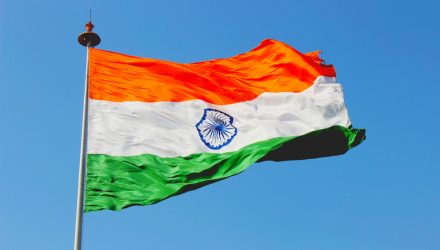It’s often said elections have consequences. With national elections looming in the U.S. in November, that thesis will certainly be tested. But investors should be careful to note that the U.S. isn’t the only major economy holding elections this year. India will be doing the same.
That means high-flying ETFs such as the WisdomTree India Earnings Fund (EPI) could draw even more notice. The $2.15 billion fund has long been a beacon of light among emerging markets ETFs, notching significant outperformance of broader emerging markets benchmarks as well as competing India and China funds over the past several years.
Undoubtedly, some of EPI’s bullishness is attributable to the pro-market posture of India’s Prime Minister Narendra Modi. He’s angling for a third term in April in what will be the largest election in world history. An estimated 900 million Indians are expected to head to the polls.
Election-Year Vulnerabilities Could Impact India Equities
Given the sheer size and scope of India’s national elections, it’s possible that a resounding victory by Modi could drive stocks in Asia’s third-largest economy higher, while potentially lifting ETFs such as EPI in the process.
There are concerns about potential election-year vulnerabilities and rich valuations on India equities. But it’s worth noting Modi’s track record on economic growth is impressive.
“Though global growth is expected to slow from 2.6% last year to 2.4% in 2024, India is booming. Its economy grew by 7.6% in the 12 months to the third quarter of 2023, beating nearly every forecast. Most economists expect annual growth of 6% or more for the rest of this decade. Investors are seized by optimism,” reported The Economist.
While Modi has been viewed as controversial by some, he has proven reform-minded. For example, his administration has increased access to traditional banking services for millions of lower-income Indian citizens. That’s meaningful to investors considering EPI. That’s because the ETF allocates nearly 23% of its weight to financial services stocks, its largest sector weight.
Modi’s efforts, which also include increased digitalization, have been beneficial in other ways. For example, India’s bond market is incrementally opening to global investors. Meanwhile, corruption – long a drag on the economy – has been reduced, as has poverty. Those factors could bode well for his reelection bid.
“It is a big improvement on the old system, in which most welfare was distributed physically and, owing to corruption, often failed to reach its intended recipients. The poverty rate (the proportion of people living on less than $2.15 a day) fell from 19% in 2015 to 12% in 2021,” according to the Economist.
For more news, information, and analysis, visit the Modern Alpha Channel.








